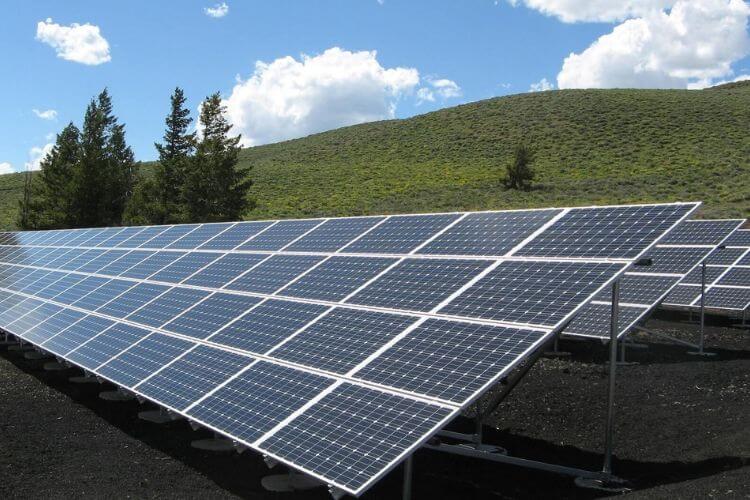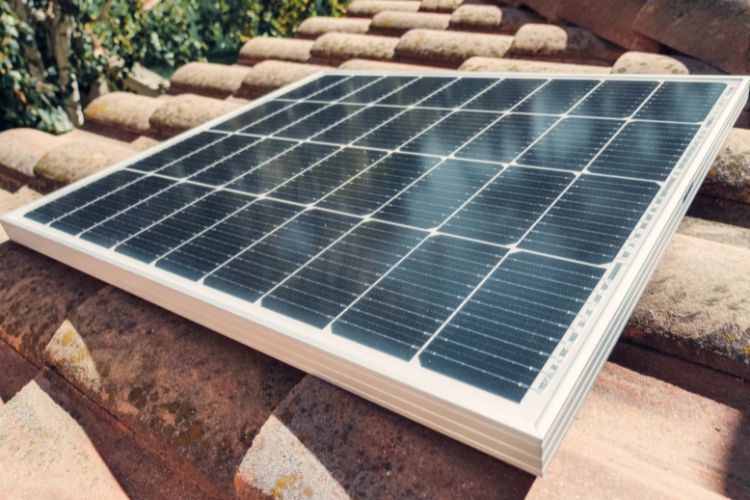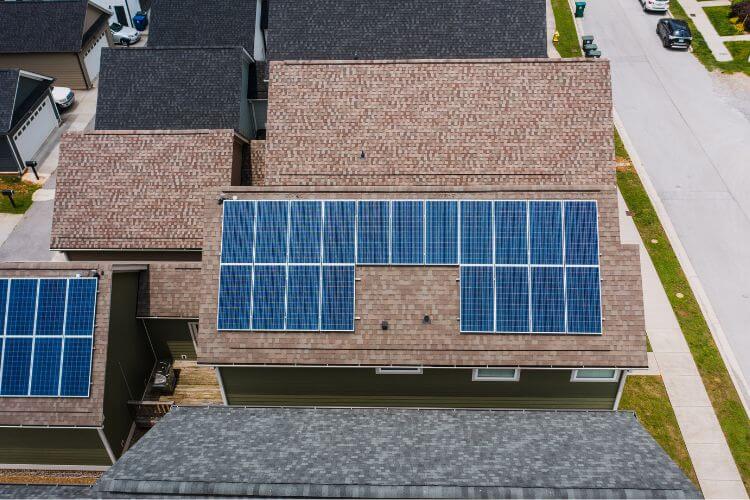
- By greenair-cy
- In Solar Systems
The Ultimate Guide to Net Metering in Cyprus
How does net metering work in Cyprus? If you’re planning to apply for a solar panel scheme soon, it’s wise to be aware of the program you get on the Mediterranean island. We’ve compiled a guide with all the key aspects of net metering in Cyprus to help you with your solar panel project.
What is net metering?
Net metering is a billing mechanism that credits solar energy system owners for the electricity they add to the grid. For example, if a residential customer has a solar panel system on the home’s rooftop, it may generate more electricity than the home uses during daylight hours. If this excess electricity is fed back into the utility grid, the customer is credited on a kilowatt-hour (kWh) basis for the electricity provided to the grid. Customers with eligible facilities can receive compensation through net metering for any excess generation fed back to their local utility grid.
Are you considering installing solar panels? Contact us today and receive a free quote
How does net metering work in Cyprus?
In Cyprus, there’s a net metering scheme in place to regulate the price and amount of electricity supplied to solar panel owners – the final clearing happens at the end of the financial year (February-March). With a 10 kW system in place, you can generate up to 16,000-17,000 kWh a year which translates into around €3,500 -€4,000 (based on the EAC residential tariff €0.2/kWh), an amount that you would’ve paid for electricity to EAC.
Why should you opt for net metering in Cyprus?
Here are two reasons you should opt for the net metering scheme.
It saves you money
Installing a PV system with net metering not only helps you produce green energy but it also saves you a significant amount of money on electricity bills.
Recent research suggests that the electricity in Cyprus is the 7th most expensive in Europe. The price of electricity (July 2022) is €0.3833 per kilowatt hour (including VAT).
On top of this, the VAT on electricity in Cyprus has returned to 19% since August from 9% for all consumers and 5% for low-income households.
More control over generating electricity
The net metering program in Cyprus allows you to generate electricity in a greener way.
Electricity demand curves are smoother because of net metering rules, which also help utilities better control their peak electricity usage. Net metering lessens the load on distribution networks and prevents losses in long-distance power transmission. It promotes generation close to the point of consumption.
Shorter payback time
Because you sell the excess electricity (the days you produce more than you consume) the time for paying back your initial investment in a PV system is going to be shortened significantly.
For example, a solar panel system in Paphos with a net metering program in place would take about 4-5 years to pay back whilst in some American states including Arizona and Louisiana where there’s no official form of net metering the payback can take over 10 years.

Who does qualify to apply for net metering in Cyprus?
Let’s have a glance at the different groups of people that can qualify for the net metering program.
Cyprus residents
If you have solar panels installed on the roof of your house or business, you qualify for the net metering scheme. If you’re planning to install solar panels on a common-use building, all of the owners should agree in order to go ahead with the net metering program.
Do vulnerable groups qualify for net metering?
Any Cyprus citizen who is considered to be vulnerable by the Ministry of Energy, Commerce, Industry and Tourism and whose family income is less than €39,000 are eligible to apply for the net metering scheme in Cyprus.
What is the process for licensing, installations and commissioning?
All the applications for solar panel projects should be submitted to the EAC (Electricity Authority of Cyprus).
One of the initial fees for the meter replacement is for the meter. It is replaced with a bidirectional (it records double) that records the energy generated from solar panels.
After submitting your application, you’re going to receive the decision (approval/rejection) from EAC within 7 working days. If EAC rejects your application, they withhold the €50 administration fee. However, you receive the €200 + VAT fee for the meter replacement within 20 days.
If your application is successful, you’ll need to apply for inspection and connection to EAC; they are going to go ahead with the inspection and connection within 25 working days.
It’s also key to be aware that Inspection, connection and installation should be completed within 60 working days. The first day counts from the date of your solar panel application. In case these three steps aren’t completed within the time period your approval will no longer be valid.
If you’re not familiar with the above 3 steps, find their definition below:
- Inspection: The EAC staff is going to examine the place for fire safety issues and assess if there are objects that can cause injuries. They also examine thoroughly wire connections.
- Connection: MC4 connectors are going to be used for connecting your solar panels which are safe to use and efficient. So, during the connection, your house’s electricity should be switched off for safety purposes.
- Installation: It practically means setting the whole system to be able to use it. It entails installing solar panel mounts, and solar panels, wiring the panels with each other, installing the solar inverter and testing among others.
What are the initial and maintenance expenses?
The applicant should pay €250 + VAT initially. This amount includes administration fees, the replacement of the meter and the inspection and connection of the distribution system.
Plus, they are going to be asked to pay an annual fee (€47.73 + VAT per kWp) to balance the belayed solar energy production. The fee can be paid in 6 equal instalments (€7.87 + VAT per kWp). This fee might differ in future, depending on the regulations set by Cyprus Energy Regulatory Authority (CERA).

What documents are needed for the application?
Let’s go over the list of documents required for the solar panel application:
Residential projects
- A copy of the last 12 months of the building’s electricity consumption.
- A document of a fairly recent utility bill that states the name of the applicant.
- A copy of the title property on which you’re going to install the solar panel system.
- The licence of the building.
- All the owners’ approval for solar panel installation (when there is more than one owner of the building).
- A printed copy of the plot layout plan for the neighbourhood.
- A signed document from the applicant that clearly states the property he has applied for is their first house.
- Proof of permanent residence can be a permanent residence certification or copies of six consecutive months of utility bills. It should state the name of the applicant.
- In case the applicant belongs to ‘vulnerable groups’ a document that proves it needs to be attached to the application.
Non-residential projects
- A copy of the last 12 months of the electricity consumption of the building (sent by EAC)
- A document of a fairly recent utility bill that states the name of the applicant
- A copy of the title property on which you’re going to install your solar panel system.
- A copy of the plot layout plan for the neighbourhood.
The Cyprus government subsidies you should know
In an attempt to achieve energy efficiency. In May 2022 the Ministry of Commerce announced that applicants of solar panel projects with net metering are entitled to subsidies of €375/kW while vulnerable categories can also receive funds up to €1,000/kW. Regardless of the size of the projects, subsidies are capped at €1,500/kW and €5,000/kW for non-vulnerable and vulnerable applicants accordingly.
Visit resecfund where you can find useful links on how to start with your application. Here’s also a useful guide on things you need to be aware of before starting your application.
If you have questions regarding your subsidy application you can always reach out to the Green Air team for a free quote.
